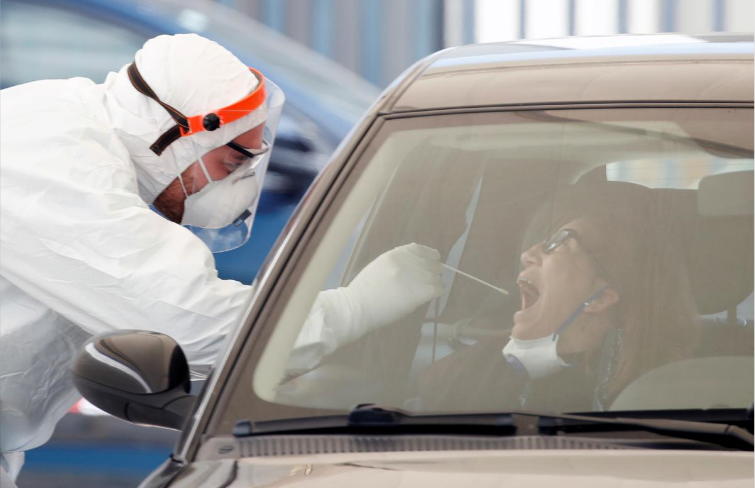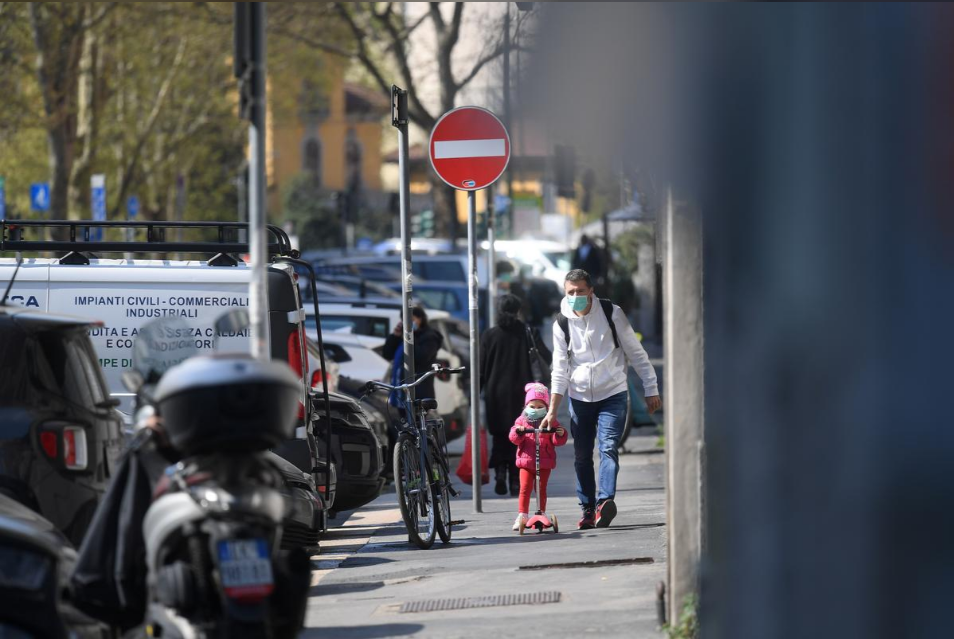
A health worker wearing a protective gear takes a swab from a person sitting in a car, as the spread of coronavirus continues, in Giugliano in Campania, Italy, April 6, 2020. /Reuters
A health worker wearing a protective gear takes a swab from a person sitting in a car, as the spread of coronavirus continues, in Giugliano in Campania, Italy, April 6, 2020. /Reuters
Authorities in northern Italy have begun testing health workers for antibodies that may help identify individuals with immunity to the coronavirus as they look for ways to ease the lockdown imposed a month ago to contain the epidemic.
On Monday, the northeastern region of Veneto, which saw one of Italy's earliest outbreaks of the disease in February, started blood tests on health workers, following neighboring Emilia Romagna, which began testing last week.
"I can announce that the blood tests on health workers have begun," said regional governor Luca Zaia.
Following an initial phase of testing on 2,000-3,000 health workers, tests are to be extended to staff and residents in nursing homes and workers in contact with the public.
Zaia said the aim would ultimately be to allow authorities to issue "licenses" for individuals with proven immunity to the virus to return to work.

A street scene in Milan, Italy April 6, 2020. /Reuters
A street scene in Milan, Italy April 6, 2020. /Reuters
Phase two stage
The tests come as the number of deaths and infections has flattened out and the government has begun considering the so-called "phase 2 stage" of the crisis, when businesses and industry closed during the lockdown can start to reopen.
Following several days of encouraging data, Health Minister Roberto Speranza outlined a series of measures, including more testing and a beefed up local health system, intended to allow a gradual easing until a vaccine might be developed.
"There are difficult months ahead. Our task is to create the conditions to live with the virus," at least until a vaccine is developed, he told the daily La Repubblica newspaper.
The total number of confirmed cases increased by just 3,599 on Monday to 132,547, the lowest daily rise since March 17, while the number of deaths rose 636 to 16,523 - just under a quarter of all the fatalities registered so far in the world.
With Italy's fragile economy facing the most serious collapse since World War II, authorities are desperate to restart production while avoiding a second wave of infections that could reignite the epidemic.
But in the absence of a cure or vaccine, the response has been hampered by the many unknown aspects of the virus and uncertainty over whether immunity can be developed against it.
The tests, which look for antibodies produced by the immune system in response to the illness, are simpler than the swab tests on mucus used to find the virus itself, but there is some doubt about whether they can yield reliable results.
"Some say they will work, others say they won't," Zaia told a daily briefing. "It all has to be proven but that’s how vaccines are made as well."
The blood tests, which produce results much more quickly than swab testing, aim to identify two types of antibodies – one which shows contact with the virus and a second which would indicate whether the body has developed a defense against it.
"We've begin verifying whether these tests are effective and whether they concord with molecular analysis," said Andrea Crisanti, a professor of virology at the University of Padua, which is carrying out the testing with the University of Verona.
"I think that within two weeks or a month we will have enough data to be able to have a certain level of confidence," he told Reuters.
Source(s): Reuters